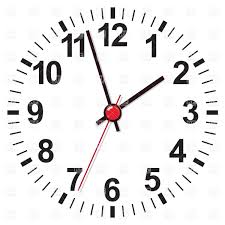Newsgram
Time Management Habits
One of the most difficult skills to master at the beginning of your career
This article is 9 years old. It was published on August 1, 2015.

Time management is one of the most difficult skills to master at the beginning of your career. You can waste a tremendous amount of time by trying to multitask or focusing too much on unimportant details.
Based on an article by Richard Feloni posted on the World Economic Forum website, here are a few time management habits that are as relevant to a 22-year-old intern as they are to a 50-year-old executive.
1. There is always time.
You never "run out of time." If you didn't finish something by the time it was due, it's because you didn't consider it urgent or enjoyable enough to prioritize ahead of whatever else you were doing.
2. There's a difference between pushing yourself and burning out.
Hard work sometimes entails stretches of little sleep and relentless productivity. But even if you're incredibly driven, you need to make time for relaxation or else your exhaustion will catch up to you and make you less productive than you otherwise would be.
3. Multitasking kills your focus.
Studies have found the brain expends energy as it readjusts its focus from one item to the next. If you're spending your day multitasking, you're exhausting your brain.
4. Distractions can be controlled.
Consider splitting up work into uninterrupted periods of 25 minutes with three- to five-minute breaks in between, or use software like SelfControl that prevents you from using sites like Facebook or Twitter for stretches of time.
5. Being a perfectionist can be a major crutch for day-to-day activities.
Gen. George S. Patton once said, "A good plan executed now is better than a perfect plan executed next week."
6. More work hours don't always result in more productivity.
Don't kid yourself into thinking that sitting at your desk will somehow extract work from you. Do whatever you can to finish your current task by the end of regular work hours instead of working into the night.
7. It's best to reply to someone as soon as you read their correspondence if it will take you a couple minutes or less.
Apply "Getting Things Done" author David Allen's "Two-Minute Rule" to your written correspondence. If an email can be answered in that time, then respond immediately rather than setting it aside.
8. No two tasks ever hold the same importance.
Daily to-do lists are effective ways of scheduling your day, but it's important to prioritize them. Start your day with the top-priority tasks, and leave the filing for when you're mentally drained.
9. Always know the one thing that you really need to get done during the day.
To help prioritize, determine what task in front of you is most important, and focus your energy into getting that done as soon as possible.
10. Take notes.
Don't assume you'll remember every good idea that comes into your head during the day. It doesn't matter if it's a notebook, whiteboard, or an app like Evernote -- write stuff down.
# # #
-
Department:
Newsgram
-
Topic:
Employees